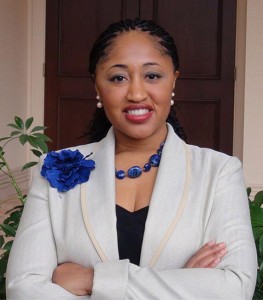 Community Matters is a biweekly opinion column. The views expressed are solely the author’s.
Community Matters is a biweekly opinion column. The views expressed are solely the author’s.
Last month I led a conversation in Loudoun County to determine how a group of committed women activists could best serve our community.
One of the attendees shared her experiences of a teacher mishandling a racial situation involving her son. The next day I received an email from the Arlington NAACP asking for more details from Arlington Public Schools (APS) on the “current policy and procedures for staff, students, and families to report acts of discrimination and bigotry.”
While I know Arlington is not immune to racism, Loudoun County tends to get more local media attention around racist incidents including KKK flyers and confederate war monuments.
Sometimes it’s easy to believe that living in “progressive” Arlington means that we have less racism, but the moniker can be misleading. The lasting disparities and discrimination that can be found in almost every sector of our society is proof of the prevalence of racism. Racism still exists, yet I believe we have the power to eliminate it.
A September 22, 2019 Washington Post article, “Arlington schools were named best in Virginia, but a growing chorus of black parents is disrupting that narrative” highlighted the Black Parents of Arlington’s concerns about the APS disparities noted that 2015 federal data show that Black students accounted for 29 percent of Arlington’s in-school suspensions while making up 11 percent of the school population. Hispanic students made up 41 percent of suspensions but were just 28 percent of the population.
At a recent meeting of the African American Leadership Council of Arlington we discussed an incident at Wakefield High School in which swastikas were found on the building. ARLnow has also reported incidents in the last few years of racial graffiti and stickers.
Always having been an optimist, I am working with groups in Loudoun, Arlington and Fairfax to collaborate, prevent and address what appears to be repeated incidents, particularly in the school systems.
Each time I hear about a new racial incident and discuss it, the most common response is that racism is inevitable, “if people are different, there will always be people who do not like those differences.”
What if we could have a world one day where racist incidents and discrimination was eliminated? How do we start to get there? Could we make more progress in “progressive” Arlington?
Studies have found that simple conversations could change anti-transgender attitudes. Some believe this same tactic could be used with racist attitudes. (I am not comparing transgender people to racial minorities.)
Researchers at UC Santa Barbara and Stanford shortly before the 2016 election found that if people who strongly identified as white were told that nonwhite groups will outnumber white people in 2042, they became more likely to support Trump. That suggests there’s a significant racial element to support for Trump. German Lopez found that in talking with researchers and looking at these studies “it is possible to reduce people’s racial anxiety and prejudices… but, researchers cautioned, the process of reducing people’s racism will take time and, crucially, empathy.”
Two solutions that were clear in the preliminary research I have done is that 1) calling people racist is not the way to reduce racial bias and 2) we must have more conversations about race.
Arlington has begun efforts to reduce racism. Since 2004, Challenging Racism has held yearlong workshops to teach people in Arlington about issues surrounding race. According to their website, “it began as a parallel experience to the Arlington Public Schools initiative to inform faculty and staff about race and equity in its effort to close the Achievement Gap between white and non-white students.”
On March 2 the County Board held a work session on racial equity with Mitch Landrieu, former mayor of New Orleans. Landrieu noted that “racism is not going away by itself, unless you interrupt it, and treat it, you can’t get to the other side.”
For everyone who wants to stop talking about race, I urge you to think about how people who have been affected by racism and the lasting effects of slavery feel when you make that statement. I encourage you to create open and productive dialogue about race. Racism – even in Arlington – is only inevitable if you decide to ignore it.
Krysta Jones has lived in Arlington since 2004 and is active in local politics and civic life. This column is in no way associated with or represents any person, government, organization or body — except Krysta herself.

